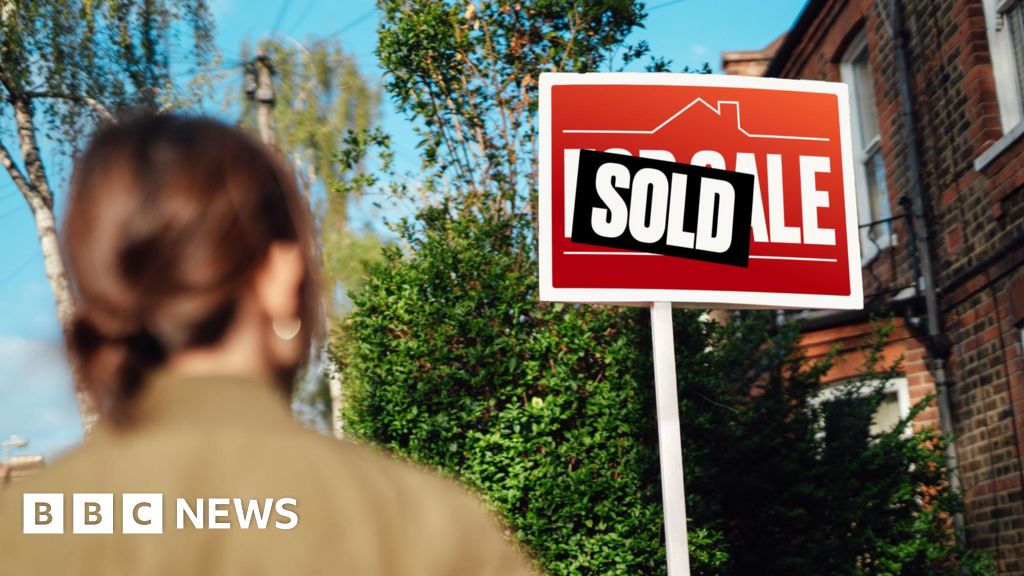ARTICLE AD BOX
By Simon Jack
Business editor
Image source, Getty Images
A windfall tax on big oil and gas companies to help tackle the soaring cost of living has not been ruled out, sources close to the chancellor say.
Officials say Rishi Sunak is still open to the idea if firms do not reinvest their bumper profits in the UK.
Current policy is still based on the tax deterring investment in new oil and gas fields and green technologies.
Prime Minister Boris Johnson warned last week it could put future UK energy security at risk.
However, the Treasury is now pointing to comments Rishi Sunak made in an interview with Mumsnet in April in which he said "nothing's ever off the table in these things".
The chancellor warned that if sufficient investment was not forthcoming "then of course that [windfall tax] is something I would look at".
The fact that Treasury officials are using the chancellor's comments in April as the primary text in the study of windfall tax probability is further evidence of the "leeway" they have on the policy, one official said today.
The question remains how much investment would be enough to make the chancellor put the windfall tax stick away?
The chancellor and business secretary Kwasi Kwarteng have previously welcomed pledges by BP to invest £18bn in the UK by the end of 2030 and Shell to invest £20-25bn in the next 10 years. However, neither of their commitments has materially increased as their profits have ballooned.
BP boss Bernard Looney, who famously described the company as a "cash machine", told journalists that it would proceed with all of their UK investments with or without a windfall tax.
Shell boss Ben van Beurden wouldn't be drawn on whether it would scale back investment but did say Shell's programme of investments would be helped by "a stable tax and regulatory environment".
Windfall taxes are not something in this chancellor's economic DNA. Oil and gas prices are extremely volatile and when BP and Shell were making record losses when oil prices collapsed, there was no clamour to help them out.
The boss of Centrica, Chris O'Shea has likened a windfall tax to "burning the furniture to keep warm" - a quick fix but a poor long-term decision.
'Debate not going away'
But the chronic squeeze on household incomes has seen some perhaps unexpected advocates for a windfall tax.
On Tuesday, Tesco chairman John Allan told the BBC that the case for one was overwhelming in the face of the genuine hardship he was seeing reflected in stores.
An oil and gas industry executive conceded "it's clear this debate is not going away. I don't think the chancellor wants to do it but the political pressure is clearly there"
The evolution of a policy U-turn starts with a few mutations, some of which are shut down and others allowed to persist as it slowly takes a new shape. We are not there yet - but to mix metaphors further, officials seem to be "rolling the pitch" before potentially delivering a change.
One of the biggest problems may be designing the mechanism to impose the tax.
BP and Shell have paid almost zero tax on their North Sea operations over the last few years as prices have been much lower and they are allowed to offset the cost of decommissioning old North Sea facilities against any profits made.
Taxing worldwide income would mean taxing BP and Shell on profits made in places like the US, activities they will have paid US tax on already.
While big global players like BP and Shell could take such a tax in their stride, UK waters are also home to smaller firms who may be deterred from investing by the prospect of a tax raid. Creating a minimum revenue threshold - as the government did with its digital services tax - could exempt them while hitting the deep pockets of the likes of BP and Shell.
The other question is whether it is purely retrospective - and if so, how far back in history do you go. The shareholders of the company now may not be the same as the ones that enjoyed the windfall, so there's a risk in going back too far.
However, tax experts say that if you made it purely retrospective, then you could argue it is no disincentive to future investment as long as it comes with a credible promise it's a one-off occurrence.
It's likely that these are the exact conversations going on inside the Treasury right now.

 2 years ago
49
2 years ago
49








 English (US) ·
English (US) ·